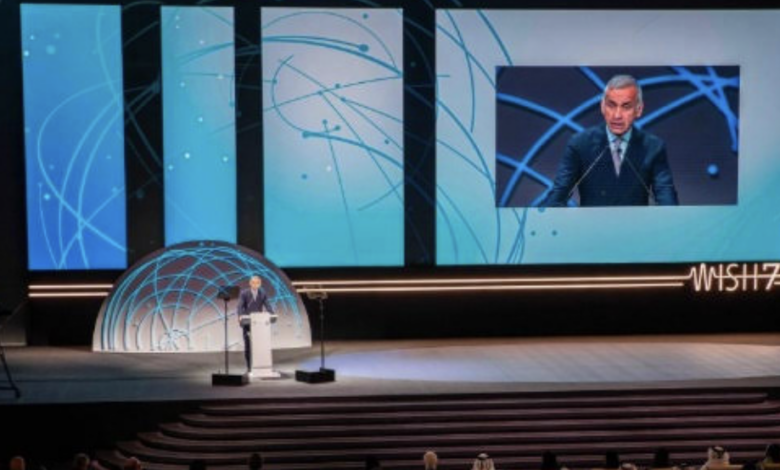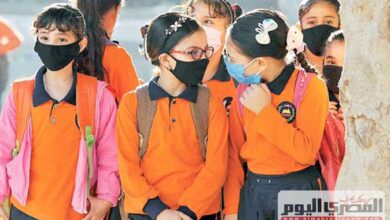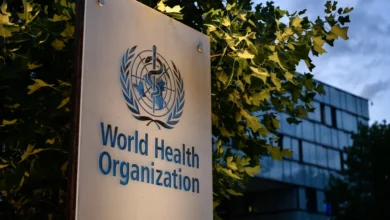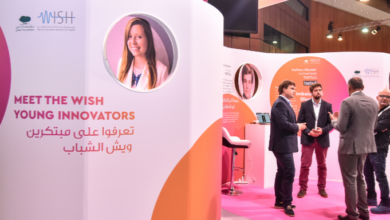
The seventh World Innovation Summit for Health (WISH) conference kicked off on Wednesday in Doha bringing together global healthcare experts under one roof for two consecutive days.
Humanizing healthcare in times of conflict and inequality is the central theme of the 2024 WISH.
This year’s event, hosted by Qatar Foundation (QF), is planned to delve into innovative solutions that prioritize the well-being of all, leaving no one behind. By focusing on resilience and equity, WISH aims to inspire a healthier future for everyone, everywhere.
The inaugural ceremony witnessed the presence of notable speakers such as Dr. Hanan Mohamed Al Kuwari, Qatar’s former Minister of Public Health; Lord Darzi of Denham, Executive Chair of WISH; and Dr. Christos Christou, President of Médecins Sans Frontières.
In her opening address, her Excellency Dr. Al Kuwari said: “Under the visionary leadership of Her Highness Sheikha Moza bint Nasser, WISH continues to expand as a global community committed to making healthcare accessible and humane.
“At WISH, we strive to present the world’s most cutting-edge ideas and scientific advancements. But we also focus on confronting the urgent challenges before us..
“This year’s theme, ‘Humanizing Health: Conflict, Equity, and Resilience’, reflects our commitment to addressing the profound health challenges people face worldwide, especially those who have, and continue to endure unimaginable hardship…. The toll of war and displacement has tested humanity’s resilience and underscored the urgent need for peace, health and protection.”
Lord Darzi of Denham, Executive Chair of WISH, drew attention to the perilous conditions faced by healthcare workers in war zones, “War is a healthcare catastrophe. There can never be any justification for targeting healthcare personnel or infrastructure – it is purely and simply wrong. We must stand together to condemn such actions and honor those who courageously continue to provide care in the most appalling conditions.”
Addressing the summit’s theme of conflict, equity, and resilience, he condemned the alarming rise of attacks on healthcare personnel and infrastructure.
“We need to know that there is a place that is respected, and that place is a hospital. We are scrambling without basic medicines, anesthetics or antibiotics. There are many doctors in Gaza who are amputating on children without anesthetic, for example,” Dr. Christou said.
When questioned about MSF’s impartial approach, he reaffirmed the organization’s unwavering commitment to providing medical aid with no exception. However, physicians “have a mandate to bear witness, to be a voice of the voiceless.… Neutrality means many things, but it does not mean silence.”
A powerful film was screened to convey a profound message about the sufferings of Palestinians as a result of the aggressive Israeli assaults on Gaza.
It recounts the story of 11-year-old Dareen Al Bayaa, who lost nearly her entire family due to an Israeli strike on her home, leaving no one alive, but her five-year-old brother who was taken with her to Doha to undergo inpatient treatment.
This edition is distinguished by WISH’s partnership with the World Health Organization (WHO) which marks a new era of collaboration in global health.
By developing evidence-based reports and policy papers, the two organizations aim to transform healthcare delivery, prioritizing the human element and addressing the specific needs of vulnerable populations.
This partnership underscores the signifance of innovation and human-centered approaches in addressing global health challenges.
The global-gathering event scrutinizes into the theme of “Humanizing Health” through four key areas:
- The health impacts of armed conflict, including pain management, disability, hunger, and mental health.
- The health of refugees, migrants, and other vulnerable groups, with a focus on tuberculosis and palliative care.
- Innovations in healthcare systems, including addressing antimicrobial resistance and ethical considerations in AI.
- Empowering communities for better health: Addressing obesity and women’s cancers.
Day one of the summit was characterized by a multitude of brainstorming sessions addressing reports produced by WISH and WHO in addition to profound discussions and open debates.
The first main session of the day was titled ‘In the line of fire: Protecting health in armed conflict’, which is a fruit of the extensive efforts of WISH and WHO regarding the 2024 report.
The discussion was headed by Richard Brennan, the Regional Emergency Director of the Eastern Mediterranean Regional Office of the WHO along with health specialists including Yousuf Al Khater, President of Qatar Red Crescent Society; and Sigrid Kaag, the United Nations’ Senior Humanitarian and Reconstruction Coordinator for Gaza.
Additionally, one of the most significant sessions of the first day featured antimicrobial resistance and dug into the WISH and WHO joint report titled ‘Tackling antimicrobial resistance (AMR): How to keep antibiotics working for the next century’.
It was chaired by the report’s co-author Professor Dame Sally Davies, UK Special Envoy for AMR. The panel comprised Dr. Karin Tegmark Wisell, Sweden’s Ambassador for Global Health; Dr. Hanan Balkhy, the Regional Director of the Eastern Mediterranean Regional Office of the WHO; Dr. Christos Christou; and Dr. Nour Shamas, a member of the AMR Narrative.
The summit’s inaugural day culminated in a thought-provoking discussion on the ethical dimensions of AI in healthcare, led by Dr. Mohammed Ghaly, Professor of Islam and Bioethics at the Centre for Islamic Legislation and Ethics at QF’s Hamad Bin Khalifa University (HBKU), and the author of the groundbreaking report ‘AI and Healthcare Ethics in the Gulf Region: An Islamic Perspective on Medical Accountability.’ Dr. Barry Solaiman, Assistant Professor of Law at HBKU also shared her valuable insights as a member of the expert panel.
Established in 2013, the WISH Innovation program has empowered 160 innovators from 41 countries, transforming global healthcare through innovation.
Founded in 1995, the QF is driving Qatar’s transformation into a knowledge-based economy by providing world-class education, stimulating groundbreaking research, and empowering communities.
By promoting a culture of lifelong learning and engaging with the community through culturally relevant programs, the QF’s goal is to empower individuals and contribute to a sustainable, prosperous future.




